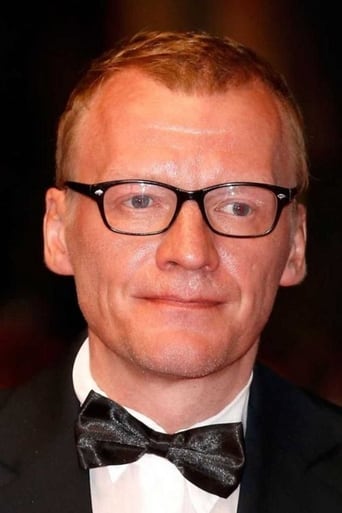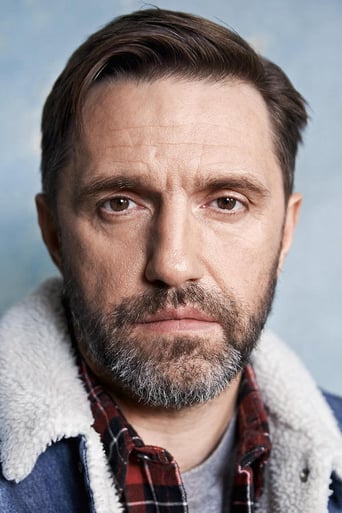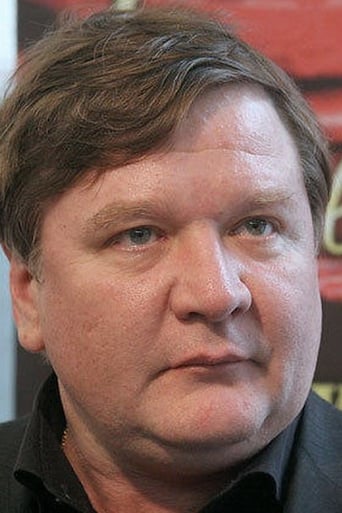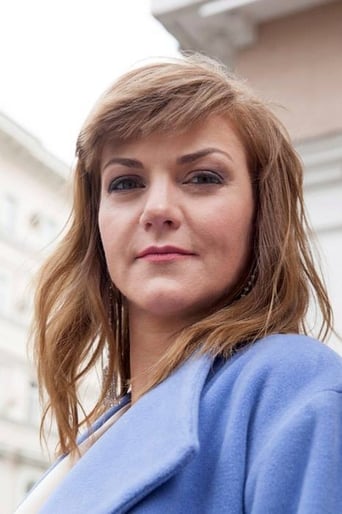AniInterview
Sorry, this movie sucks
Phonearl
Good start, but then it gets ruined
MamaGravity
good back-story, and good acting
Mathilde the Guild
Although I seem to have had higher expectations than I thought, the movie is super entertaining.
nepeta
Brilliant film that discretely depicts the hypocrisy and nonsense of the church and faith, corruption and power inequality. The ones in power always win in the courts. This film is one of the few films I've watched lately that made me feel amazed by it's end.
Lee Eisenberg
Whether you relate it more to Marvin Heemeyer or the story of Job, Andrey Zvyagintsev's "Leviafan" ("Leviathan" in English) is an impressive piece of work. It's probably a commonplace story, with the officials in an ignored city doing everything possible to serve themselves. It's the sort of movie that feels like a kick in the gut. Although the title physically refers to the whale skeleton, it can abstractly refer to the state's clout.Although it's a long movie, it's still one that grips you. One gets the feeling that these people in these small towns see no future, and so they spend much of their time drinking. Along with this movie, I recommend "The Fool" ("Durak").
sharky_55
The Russian men of Leviathan are drunk and depressed. The rich and powerful seek to oppress them at every turn. The women are scarcely there except to offer refreshment. Got some tea? Got a bottle of water? Should we start on the kebabs? Of course, these pleasantries are a cover for an affair that seeks to rip this family apart. When they go on a camping trip, they drink in excess and shot bottles. When the bottles are all smashed, the targets are Soviet figures of the past. Zvyagintsev, to his credit, does reel it back by not allowing the current head of state's face to end up on that brick wall. That would have taken the already meandering social-political commentary to unbearable levels. The bad guy is Mayor Vadim, who seeks to force out Kolya and acquire his land for his own developmental properties. What he is planning is not known, but it seems to be something grand and selfish. A mansion, Kolya theorises. A long winded court order lays out all the struggles in a matter of minutes, and condenses the plot like a Steig Larson novel. We are forced to find some sort of emotion in Aleksei Serebryakov's withered, anguished expression (which he does a good job of expressing). In the midst of the evil dealings, and his exasperation at these small town folk not bowing down to his will and vision, there is a scene with a priest that seemingly reeks of an attempt to humanise him. He talks pointedly with a priest as if it was a confession, and is asked about the status of his wife and kids like a pleasant bumping into a friend. Revisiting this scene after the final revelation, it has a different feel to it. They empower themselves with the word of God, and believe that what they are doing is right. They would never kill a man who was attempting to blackmail them, but they do just as much as that. The Koyla family is afforded less complexity. The son has a problem with the step-mum, as domestic dramas go. There is an affair that does not seem particularly motivated (although Dmitri is a very strong character, and his contrasting actions of fighting tooth and nail for his friend's land while breaking up his marriage speak loudly - when Vadim questions how a prestigious lawyer could be presiding the case, he does not consider the loyalty and act of friendship). The long-winded runtime might suggest that something deeper is created, but much of it is swallowed up by legal talk and incidents that never seem to go their way. Koyla flares up at every opportunity, and this makes its impact even worse. Serebryakov has a tendency to implicit suggest during moments of great tension. This is somewhat of a hit and miss. In some situations, it is very effective. As the affair is revealed, a young boy runs and yells of something seemingly more sinister. Then we linger on a secondary character, and let the burst fire of the gunshots tell us what has happened. This works because the off-the-hinge violence of Koyla has been previously established, and we can guess what would cause such an extreme reaction. And later, in the same vein, we know why Roma is running away from what he has seen in the basement, and we can link the rape to the suicide. In other cases, it chops up moments of extreme emotional reaction. We see Kolya's haggard body stumble to a halt over Lilya's corpse, but instead of letting Serebryakov react, it cuts away to his shattered face, an undetermined amount of time later. We are made to extrapolate his grief and his religious bargaining is a rather lame scene to make up for it. This is Job through and through, but for the final reward. We have a somewhat nuanced depiction of the government and church coming together for their own mutual selfish cause, and trying to justify it. This is intriguing, but the common man's story suffers for it. Everything must go wrong for them. There is no judge in to accept their statement. There is no one authorised to adjudicate. Legal pleas, months of weary and desperate fighting, fly by in mere seconds and seems to beat and beat the man until the struggle is all out of him. It opens and closes with the same shots of landscape, the natural beauty and power, the way it has ravaged a ship in its cold indifference. I suppose it is trying to suggest the absence and carelessness of God, and how men take what they want in their own way. The almost complete silence in the soundtrack rings true. It is bleak without restraint.
upnworld.com
'Leviathan' , the relentlessly realistic and vital film by director Andrey Zyagintsev , fuses the systemic with the personal in such a coldly objective way that it raises a very powerful question about why the Russian state is such a failure. When one goes back to track the history of this land, very few niceties reveal themselves over the ages. At 17 million square kilometers this Leviathan is the world's largest country straddling Asia and Europe while socially featuring the worst of both continents. Descended from the Slavs, they founded their first united state, Kievan Rus in 882 - a confederation that formed the first law code for its subjects. One law for the masses and another for the rulers persists to this day. Mongols attacked it in the 13th century - they left but infected the Tsars with the same habit of territorial aggrandizement and disregard for social welfare: the early period of this era is tellingly depicted by Tarkovsky in "Andrei Rublev" - a companion film to 'Leviathan' in the context of Russian oppressionist portraits. Serial Tsars were no better , falling to the revolution centuries later in 1917. The Communists were supposedly birthed to rescue Russia, but it became equivalent to leaping from the frying pan onto the fire. Opening frames show a sea-side location holding the house of Aleksei - a lean middle-aged man of average height and weathered peasant visage. The air is cold and bleak - to an extent because this is the shore of the Arctic ocean's Barents sea on the north-western coastal edge of Russia. Aleksei is one of those people whose continued survival is a matter of luck - he is mercurial and saturnine, and lacks the smarts and cunningness to live and flourish especially in a corrupted state. His property is under threat of being taken away by the town's corrupt fat mayor for the purpose building a telecom mast. Aleksei has a son who is in early adolescence, with little bonding between father and son, this being made worse by the fact that the boy refuses to accept his father's second wife - a relatively young, nominally attractive lady (the first wife is never in the picture). The protagonists's brother arrives from Moscow supposedly armed with his big-city smarts, barrister bonafides, and political connections to blackmail the mayor - but little does he know the way of these boon- "docks",especially when Uncle Putin, whose portrait is prominently featured in the mayor's office, isn't in a mood to show support from the capital. "Let all flowers grow, but we will only water the ones we like", Russia's Culture Minister Vladimir Medinsky said apropos Leviathan, while trying to suppress the film's screenings. Zyagintsev retaliated by saying that minister should be immediately fired. The Minister will remain in office sadly, but what does get a healthy deal of firing is the entire Russian establishment in 'Leviathan' - writer Oleg Negin and the pic's helmer do this not in a preachy way but with an inexorably sardonic technique that is actually bracing despite the film's enervating ethos. The camera zooms in slowly as a judge flanked by black-coat-donning judicial colleagues rapidly reads out a judgement that outlines the facts before eventually saying that the mayor is right and Aleksei is wrong. This uni- directional framing and movement - as we come closer and closer both spatially and temporally to the verdict - is impressive while the "legal" lady's accelerated speech actually comes across as a parody. At a later juncture, Aleksei - his world slowly crumbling apart - travels in a police jeep and we get a static-camera view from the backseat looking at the front windscreen as the vehicle keeps rolling over uneven terrain, and we wonder what further horror these authorities will bring him to. Aleksei asks a priest "Where is your merciful God?", but like the tortured souls of Ingmar Bergman's realm, this man does not realize that that the eternal essence only reveals itself to evolved minds , not to those still languishing in thankless physical corpora. We gradually see that almost all of Leviathan's adults have serious faults of character - and these schisms ultimately coalesce to create the bigger rupture. It's a rotten town, with the judge and police chief shown in a team huddle with the mayor on how to tackle the peasant : and when the latter's group goes to town to complain, all the supposed authorities seem to be out of office with nobody to register the complaint. Zyagintsev goes on to muddy the narrative waters a fair bit - an outing of rifle-shooting and kebabs in the countryside ends in a off-camera fight but only much later are we shown what actually happened.Compare this story of land-grabbing to "Khosla Ka Ghosla" from India - another nation in deep doldrums; this picture, helmed by a similarly powerful social analyst - Dibakar Banerjee - has a lighter tone and a different ending but both films cover roughly the same social quandary while flinting their strong impact with differing techniques. Zyagintsev shows how to use the cold dark hammer here. We see warm lighting in a church at the end - the mayor bends to whisper in his boy's ear "God sees everything". With a God like the mayor's, we need more Satans.








